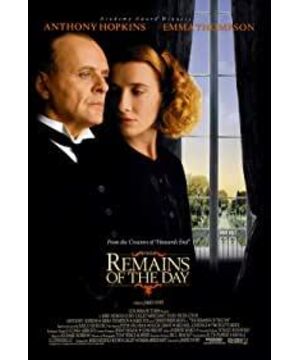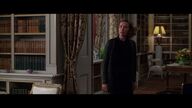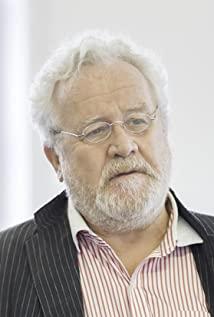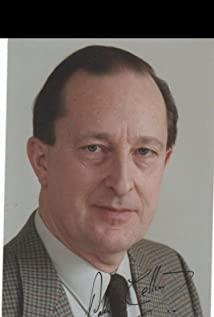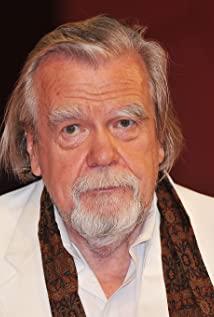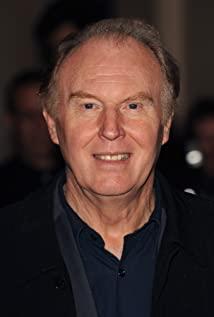I read the above-translated version of "The Long Day Will End". Personally, I feel that the name of the novel translated into "The Long Day Will End" is not satisfactory. The original English name is The Remains Of The Day. It is very flavorful, but the English translation of "The Long Day Will End" seems superfluous. I think it may be because the translation of Yilin's version is "Long Days Remains" before, which is not easy to be similar to it, and it is not easy to think of a name for Yaxinda. Tian" is so cliché and inexplicable that it is much stronger than that.
The novel "Scars of the Long Day" is very special. Among the novels I have read that are written with the first-person "I" as the center, some fully express subjective feelings, such as "The Catcher in the Rye". With "I" as a clue, the whole novel is connected, such as "The Great Gatsby". The "I" of "The Mark of the Day" is different from the other: Stevens is the central character, not the clue, but the whole novel is arguably mostly his feelings, but Stevens His rigid and extreme personality makes his feelings almost without emotion. Even the protagonist of the events he personally experiences is almost narrated from an objective point of view. This setting is still the author's intention, so I read this novel. The experience of the novel is very "challenging", and you have to get through the protagonist's lengthy lectures before you can enter the context of the novel. This preaching is also different from Tolstoy's preaching. Tolstoy's preaching is philosophical, standing at a certain height, which can cause you to think (of course, whether you want to think is two different things). The protagonist's preaching is not detached speculation. From the author's "untrue narrative" point of view, it is more like an excuse for the protagonist, justifying his life for being considered wasteful. The chatter of Stevens, who is addicted to memory, may be objective or subjective, or it may be subjective and objective. As for what it is, it all depends on the reader's own experience.
Adapting a novel into a movie is not easy, but it is not an impossible task. This is a commercial film with a literary flavor, so all the changes are in the service of the dramatic conflict. The first half of the film revolves around an international meeting aimed at reducing sanctions on Germany, but the meeting in the novel takes place in 1923, while the meeting in the film takes place in 1936. In 1923, Germany was still in the period of the Weimar Republic. The year before this meeting, France dispatched troops to occupy Germany's industrial core Ruhr area because Germany was unable to pay the war reparations. Germany resisted by sabotage, resulting in domestic currency. Inflation has reached alarming levels, and the economy is on the verge of collapse. To be honest, it is right for Lord Darlington to preside over such a meeting at this time, and the novel also wants to express the gentlemanly character of Mr. Darlington. But the film sets the meeting 13 years later, when the Nazis have come to power and sent troops to occupy the Rhine demilitarized zone, which has changed the pattern of Western Europe after World War I and posed a threat to European security. At this time, Darlington presided over such a meeting again, and it was obviously unclear, and it was simply for the "appeasement policy". Although this strengthens the dramatic effect of the film and makes the conflict of events more concentrated, Darlington's image is greatly reduced, but it does not seem to be inconsistent with the character of the Lord in the novel. In the performance of the character of US Congressman Lewis, the film obviously has the suspicion of overstating. Because the background of the meeting in the novel is as mentioned above, then Lewis persuading the French representative to sanction Germany is obviously instigating, and in the film the meeting is already under the shadow of the rise of the Nazis, then Lewis’s act of uniting law and Germany is full of justice Sex, his argument that professional diplomacy replaces gentleman diplomacy is so incisive, not like in the novel, but more like a self-justification after being severely reprimanded by the French representative.
The novel does not focus much on Congressman Lewis, and his attitude toward these American upstarts may be seen from his manner of sowing discord at the meeting. But in the movie, he was merged with Faraday, an American who bought Darlington Manor. Although there are still some traces of the condescending of the nouveau riche, it is not annoying. Considering that the director of the film is American, and the screenwriter has lived in the United States for a long time, it is not surprising that this may be intentional.
The theme of the novel is Stevens' discussion of "dignity", but through the long paragraphs of his discussion of dignity, in fact, I have not understood whether he has an accurate understanding of dignity. I guess it may be based on this, the writers and directors did not take this theme as the center of the film, and all the paragraphs related to this theme in the novel were compressed and deleted. In the whole film, there are probably only two subjective expressions of dignity and occupation by Stevens, one is the scene of the servants' dinner, and the other is the scene of chatting with Mr. Benn (Mr. Benn is Miss Kenton's later husband, His role as the butler of Sir Blackshirts is also absent in the novel. This setting of Mr. Benn is probably also to allow Stevens to reveal his professed profession, and to give the audience an intuitive understanding of Miss Kenton's husband. Feeling. By the way, in the original book, the British fascist influence on Darlington was a woman, and the movie deleted this woman). Originally, Stevens met the villagers to discuss politics when his car broke down in a small village, and his later conversation with Dr. Carlisle was all about the topic of dignity, but the former was hurriedly taken in the movie, and the content of the discussion with the doctor also changed. Awareness of Lord Darlington's decisions. At the end of the novel, Stevens talks with an old housekeeper on the beach, which is a summary of the theme of dignity in the book, but this scene does not appear in the film (I always thought that the director did not make it at all, until I recently saw the footage of the film , I just found out that this scene was filmed, but it was deleted when it was finished).
The entanglement between Stevens and Miss Kenton is the main content of the film, and the film restores almost all the interactions between the two in the novel (there is a paragraph in which Miss Kenton rebuts Stevens for the first time, from the tidbits. See, the movie was actually shot but it was cut out during editing). But at the end of the film, Miss Kenton tells Stevens that she has agreed to Mr. Benn's proposal, only to congratulate him in a routine manner. Miss Kenton was crying in the room, heartbroken, when Stevens found out that he complained to Miss Kenton that the new maids had made mistakes and asked her to correct them. The handling was dramatic, but it made Stevens seem irrational, even to the point of inhumanity, and it didn't make sense: Miss Kenton had already tendered her resignation to Stevens, and he would let her control it. The next person can't say anything. In the novel, Stevens complained that the maid was in front and he didn't enter the room when Miss Kenton was crying, which was more in line with the character's character, but the drama was not strong. The film here sacrifices the rationality of the characters in order to strengthen the dramatic conflict.
As for the relationship between the hero and heroine, I think most of the time it stays at the ambiguous level. The disparity between the characters of the two is too great, and in fact, it is difficult to have room for further development (by the way, the two actors who play the protagonists in the movie are 22 years apart. ). As for the chapters like robbing books, in the novel, the two men and women have been together for more than ten years (probably from 1922 to 1937), and I think it is inevitable that there will be a small spark by chance. In the past few years, this kind of treatment seems a bit abrupt. As for Miss Kenton's half-covered confession at the end, I think her aunt's death had a huge impact on her (the setting was omitted in the movie), that was her only relative in the world, maybe a strong The sense of loneliness that arises spontaneously makes her emotional waves suddenly, prompting her to agree to Mr. Benn's marriage proposal, and at the same time pour out her heart to Stevens. So in the novel, she regains her senses and apologizes to Stevens, which shows that her feelings for Stevens are not that strong. In order to increase the drama, the film begins with a monologue through the letter of Mrs. Benn (that is, Miss Kenton), saying that her marriage has come to an end, which has created an opportunity for the reunion of the two. But the moment before the two met, Mr. Benn appeared and told his wife that his daughter was pregnant. Mrs. Benn finally gave up and returned to the manor for her daughter. In terms of plot, it is indeed very entertaining, but in the novel, Mrs. Benn's unfortunate marriage is actually out of Stevens' own judgment. After meeting, Mrs. Benn also said that although she stumbled with her husband, she still loved him very much. However, even with these differences, I think the movie's reductiveness to the novel is still very high in terms of the handling of the emotions of men and women. There is indeed some affection between the two, but the movie expresses it more strongly. The novel is more obscure. Of course, this is not surprising, after all, the novel comes from Stevens' subjective narrative, and he is a master at hiding his emotions.
Throughout this film, from the main line of the story to the expression of the theme, it is still in line with the novel as a whole. But after careful comparison, there is indeed a feeling of "appearance and separation". But then again, movies and novels are two different literary genres after all. If you just blindly dig novels, even if you can boast of "restored classics", it is likely to make the movie fall into a dead end, just like Qi Baishi's famous saying - "Learn from me and die."
View more about The Remains of the Day reviews


